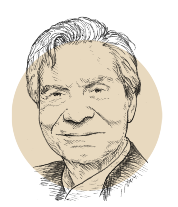At the French Consulate in New York City last January, Ambassador Philippe Etienne was bidding farewell to the French community after almost four years in the United States. The guests gathered there that evening – some of the 37,027 French citizens registered with the New York consulate – were nothing like the community that I had known some 20 years ago. The French in America are changing. So what is the typical profile of these more recent arrivals? In short: someone under 40, highly educated, and almost always with a project in mind, such as a start-up or a new app. In the past, America used to attract impoverished French people; today, it draws ambitious entrepreneurs. But will these new French residents in America become a new type of French-Americans? Most see themselves as expats, intending to make their fortune in the United States before returning to France. It is true that Emmanuel Macron planned to transform France into a “start-up nation,” but the United States remains the best place to launch innovative companies. France is overburdened by taxation and bureaucracy, and so it is in New York and Palo Alto that the world’s inventors meet and develop the apps of the future.
This gathering in New York also contradicts a widely-held opinion that the French are the only Europeans who do not migrate to the United States. In fact, they have continuously settled there in successive waves, each with its own, unique history. When the English took over Quebec, a number of French colonists were deported and many ended up in Louisiana. Starting in 1848, and with the gold rush in California, a new wave of French immigrants arrived in the United States. Most of them were fleeing poverty in their native province of Béarn, and many became launderers. They put down roots in Los Angeles and San Francisco, founding the French Hospital and the Notre-Dame-des-Victoires church. The Basque later followed, also as economic refugees, many of whom were sailors and whalers. Then came the Bretons, about 115,000 of them between 1880 and 1970, all looking to make their fortunes in America. But unlike the Irish and the Italians, they settled in rural areas rather than cities. After 1960, French immigration then slowed because quotas favoring Africa, Asia, and South America made it more difficult.
The closing of the borders changed the nature of the French presence. The Bretons, for example, who used to return home periodically, instead settled in the United States permanently. In doing so, they lost their ability to speak French, and many immigrants therefore became American. Will today’s entrepreneurs follow the same path, from expatriation to American citizenship? There are currently 145,222 French citizens declared as residents in the United Sates; many of them will become Americans, retaining nostalgic memories of their origins and attempting to transmit the French language to their children. They are being followed by a new wave, and this one is more broadly Francophone. Today, French is spoken by millions of Americans, recent immigrants and new citizens, with the distinctive accents of Haiti and West Africa. The French community in the United States is also, and increasingly, formed by this Francophone population. Moreover, in American universities, French departments now teach and study Francophone authors as much as mainland French authors.
France is therefore more present in the United States than one might imagine. It is also true that, of all European countries, France has provided the most modest contingent of immigrants, in no way comparable to England, Ireland, Italy, Poland, Ukraine, Germany, or Sweden. Is this because the French are less adventurous? The real reason is more economic than cultural. Since the 17th century, France has been a relatively prosperous agricultural nation. It has never known the equivalent of the Irish famines, the poverty of Sicily, or the antisemitic pogroms of czarist Russia. Béarn and Morbihan were pockets of poverty, but tiny ones. This French immigration, which was smaller and less impoverished, did not gather in major cities such as New York or Chicago, and did not constitute communities of powerful influence comparable to the other European diasporas – and today, to Latino, Chinese, or Indian populations in the U.S.
To return to our New York entrepreneurs and to the question of their future (French expats or Americans?), perhaps our approach is obsolete. In an era of inexpensive flights, it may become more and more common to be French and American, without any conflict between these two identities. The French actually benefit from a rare privilege accorded by George Washington: the ability to have dual citizenship. This is my case, and I vote in both countries without suffering any internal conflict whatsoever!
Editorial published in the March 2023 issue of France-Amérique. Subscribe to the magazine.












